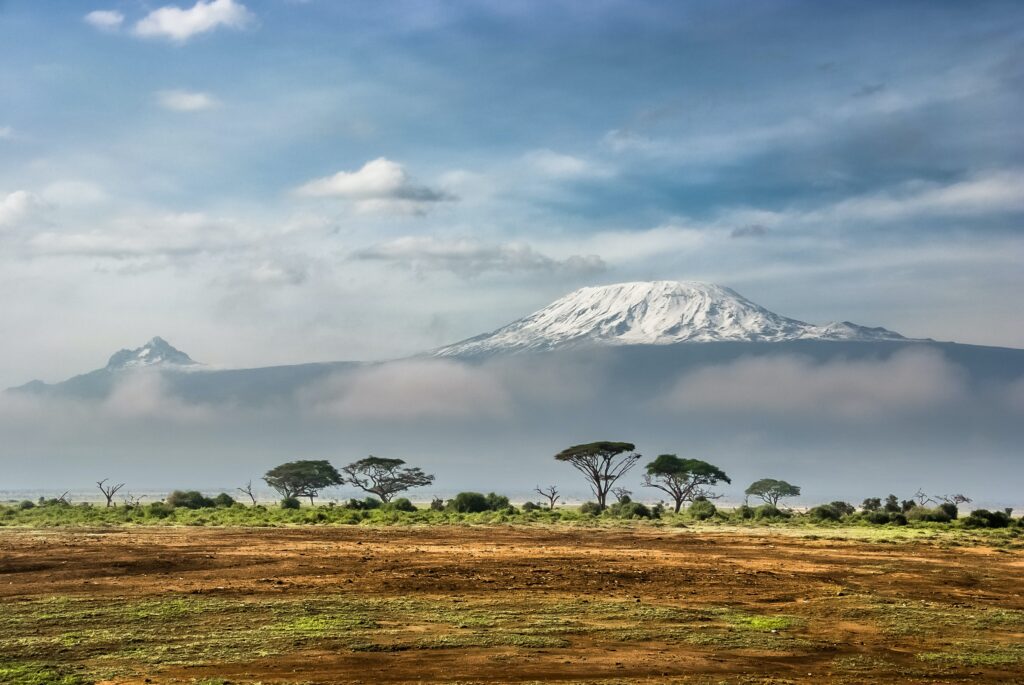Mountains, high-latitude areas, and the cryosphere are critical components of our planet’s ecological balance. Recognizing their importance in the face of accelerating climate impacts, the COP28 UN Climate Change Conference highlighted the urgent need to bridge adaptation knowledge gaps in these regions.
The 16th Focal Point Forum, held during COP28, shed light on the challenges faced by these areas and proposed concrete steps for intervention in 2024 under the Nairobi Work Program (NWP), a network of over 450 organizations working to close knowledge gaps and scale up climate adaptation action in countries.

The importance of mountains for climate action
The mountains, with their rich biological and cultural diversity, play a crucial role in the livelihoods of millions of people.
In 2010, almost 10% of the global population—around 671 million people—lived in high mountain regions, a number expected to grow to 736–844 million by 2050. With climate change significantly impacting these regions, access to context-specific knowledge is essential for mountainous countries to implement effective adaptation actions.
Environmental changes in high mountain areas are evident and alarming. Central Asia, for example, has lost over 1000 glaciers in the last 50 years; glaciers in the Swiss Alps have experienced a 10% volume loss in just two years; and the lowest snow cover in the last 30 years was recorded in 2022 in the Alpine regions of the Danube, Po, Rhone and Rhine rivers.
“We need to take care of mountains, high-latitude areas, and the cryosphere, and these regions will, in turn, help us to take care of people and the planet,” said Stefan Uhlenbrook, Director of Hydrology, Water, and Cryosphere at the World Meteorological Organization.
Knowledge gaps and challenges
During the event at COP28, several knowledge gaps were highlighted:
- Observational knowledge gaps, particularly in understanding cryosphere variables like permafrost extent, glacier ice volumes, and snow cover variation,
- There are few studies comparing past impacts and future risks across mountain regions.
- Gaps in the assessment of cost-benefits and the long-term effectiveness of adaptation solutions.
- Cultural and livelihood erosion in the Arctic is forcing communities to relocate, leaving behind their land, culture, and history.
A representative of Bhutan, a landlocked country dependent on hydropower, highlighted the issues it faces due to the retreat of glaciers and the need for finance to manage related loss and damage.
They shared the country’s experience implementing innovative finance mechanisms and community-led adaptation initiatives and stressed the importance of planning through concrete national adaptation plans (NAPs).
“Mountains, high-latitude areas, and the cryosphere are common resources shared by countries in some regions. Actors need to leverage this to identify common actions and interests to facilitate adaptation and sustainable development,” said Tashi Pem, Director General at the Department of Environment and Climate Change, Bhutan.
Next steps under the Nairobi Work Program
During the 16th Focal Point Forum on understanding and closing adaptation knowledge gaps in mountains, high-latitude areas, and the cryosphere held at COP28, countries, partners, and experts expressed their interest in collaborating with the NWP and outlined the areas that could be addressed going forward, as the work on mountains will be a priority under the NWP next year:
- Evidence-based knowledge sharing: Promoting successful adaptation cases and transboundary cooperation in mountainous regions.
- Context-specific knowledge curation: developing tailored solutions for mountain regions, such as adapting global impact indicators to national and local contexts.
- Strategic partnerships for action: co-designing solutions to tackle knowledge barriers and strengthening national, regional, and international policy frameworks, including NAPs.
- Creating an enabling environment: strengthening financial support for adaptation efforts in mountains, high-latitude areas, and the cryosphere.
by COP28


